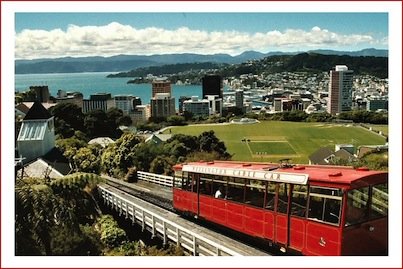It’s Global Entrepreneurship Week this week, with a focus on encouraging young entrepreneurs to step up all around the world. Unfortunately GEW seems to have bypassed New Zealand this year – but not to worry – there’s still a great deal happening in the start-up, tech and innovation space.
But lately I’ve become a little less optimistic that we are heading in the right direction in terms of supporting a high tech business start-up culture. Can start-ups really be artificially manufactured and then massaged into life, like characters on a reality TV show? Why are our academic institutions still failing to commercialise publicly funded intellectual property?
Admittedly incubation has had a somewhat chequered history in New Zealand to say the least and the jury is still out on whether intense “accelerator” programmes can work well in a small, distant and (relatively) capital poor market like ours. But who’s calling the shots on public investments in technology these days? Disturbingly, the New Zealand government’s 2015 science investment round still does not even mention a specific category for ICT. This raises questions about priorities, especially given that ICT companies have a demonstrably shorter development cycle than biotech and manufacturing.
The current crop of start-up programmes seem overly focused on creating opportunities for early stage investors, rather than advancing regional economic development. The focus should be in providing local foundations for high value, globally scalable businesses. For example, the most promising of the recent Lightning Lab alumni almost immediately relocated to the United States. But perhaps I’m missing the point? The departure of Lightning Lab itself from Wellington also underlined for me precisely why public servants and executives in suits should never be allowed to meddle with “innovation” initiatives.
Maybe none of that matters, because ultimately it’s the educational and motivational opportunities that are most meaningful. The various initiatives on offer also raise the profile of entrepreneurship as a career option. That’s important because it’s clear that the continuing lazy media obsession with sporting and entertainment “heroes” does little to encourage our young people into business at present.
What is encouraging however, is the fact that techies and start-up fanatics have become a lot more self-organising lately and are just getting on with it. I daresay the majority of interesting tech start-up companies of the future will probably get going in the same old way they have done historically – with a couple of mates bouncing an idea around over a beer and then raising some cash AFTER they get customers on board. Those companies will be thinking global from day one if they are smart. Global entrepreneurship should be the focus all year round.
Want to keep in touch with the best tech and start-up events? Make sure you sign up for the New Zealand edition of the free weekly Startup Digest.
Paul Spence is a commentator, technology entrepreneur and is a co-founder of iwantmyname, a New Zealand based global Internet venture. You can follow him on Twitter @GeniusNet


 Our Prime Minister laid bare his regional biases when he
Our Prime Minister laid bare his regional biases when he 
 Bernard Hickey’s curious
Bernard Hickey’s curious  Railways, coal mining and industrial scale manufacturing were all economic activities that had their origins in the 19th Century. This week has not been a good one for anyone employed in those businesses in New Zealand, with
Railways, coal mining and industrial scale manufacturing were all economic activities that had their origins in the 19th Century. This week has not been a good one for anyone employed in those businesses in New Zealand, with 